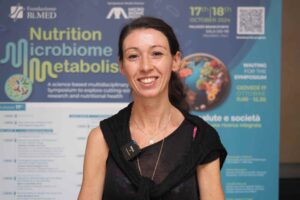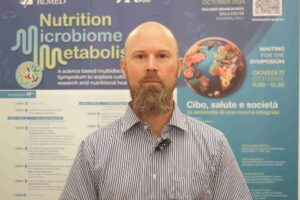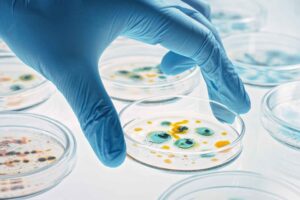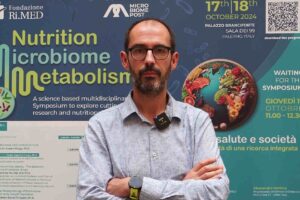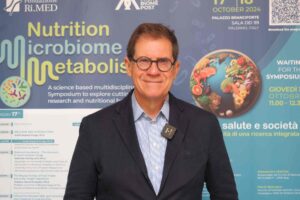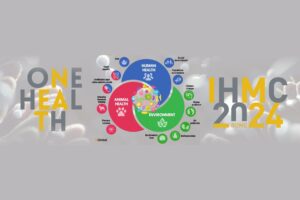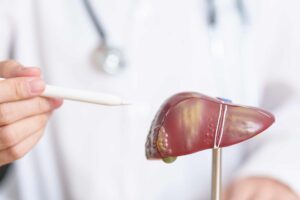Scientific research
Video, Events
The interview with Antonia Bruno, from Bicocca University of Milan (Italy), highlights research focused on using microbial signatures to enhance food traceability, ensuring both safety and quality.
Gastroenterology, Events
The interview with Björn O. Schröder from Umeå University explores groundbreaking research on the gut mucus layer, which shields intestinal tissues from bacterial invasion and inflammation.
Scientific research
The findings improve our understanding of the genetic complexity of the human gut microbiota and its implications for health.
Gastroenterology, Events
Benoit Chassaing from institute Pasteur (France), delves into the ways various environmental factors, particularly dietary additives, affect the gut microbiome.
Video, Events
In a recent Symposium chaired by Giulio Superti-Furga (The Ri.med Foundation), experts gathered to explore groundbreaking research at the intersection of nutrition, microbiota, and human health.
Geriatrics, Scientific research
The results of a recent study suggest that P. distasonis and glycitein help regulate inflammation associated with rheumatoid arthritis.
Video, Events
Microbiomepost conducted an exclusive interview with engineer Corrado Vecchi, representing Ebris, who discussed the role of artificial intelligence (AI) in processing complex data generated from multi-omic studies.
Scientific research
The microbiome is a key piece in the One Health puzzle given that microbes and antimicrobial resistance genes travel extensively between the different compartments, and effectively connects all healths.
Gastroenterology, Geriatrics
Understanding how gut microbes influence biological processes related to aging may inform interventions aimed at optimizing the microbiota to promote longevity.
Gastroenterology, Scientific research
The findings of a recent study suggest that combining dietary fiber with B. acidifaciens can be a therapeutic strategy for alcoholic liver disease.
